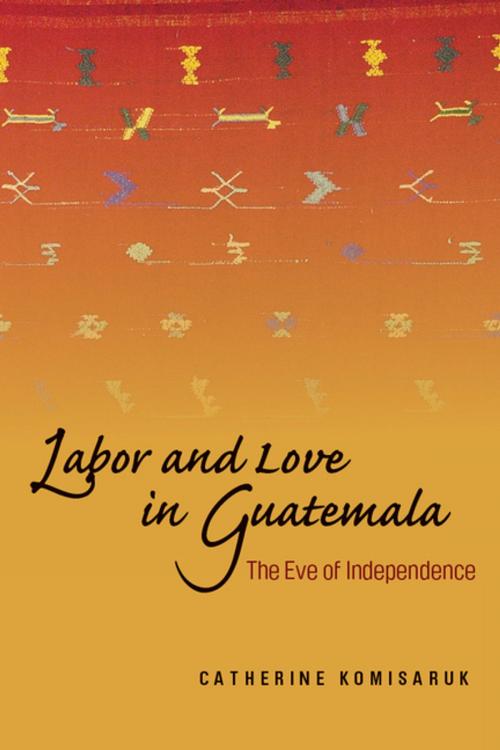| Author: | Catherine Komisaruk | ISBN: | 9780804784603 |
| Publisher: | Stanford University Press | Publication: | January 9, 2013 |
| Imprint: | Stanford University Press | Language: | English |
| Author: | Catherine Komisaruk |
| ISBN: | 9780804784603 |
| Publisher: | Stanford University Press |
| Publication: | January 9, 2013 |
| Imprint: | Stanford University Press |
| Language: | English |
Labor and Love in Guatemala re-envisions the histories of labor and ethnic formation in Spanish America. Taking cues from gender studies and the "new" cultural history, the book transforms perspectives on the major social trends that emerged across Spain's American colonies: populations from three continents mingled; native people and Africans became increasingly hispanized; slavery and other forms of labor coercion receded. Komisaruk's analysis shows how these developments were rooted in gendered structures of work, migration, family, and reproduction. The engrossing narrative reconstructs Afro-Guatemalan family histories through slavery and freedom, and tells stories of native working women and men based on their own words. The book takes us into the heart of sweeping historical processes as it depicts the migrations that linked countryside to city, the sweat and filth of domestic labor, the rise of female-headed households, and love as it was actually practiced—amidst remarkable permissiveness by both individuals and the state.
Labor and Love in Guatemala re-envisions the histories of labor and ethnic formation in Spanish America. Taking cues from gender studies and the "new" cultural history, the book transforms perspectives on the major social trends that emerged across Spain's American colonies: populations from three continents mingled; native people and Africans became increasingly hispanized; slavery and other forms of labor coercion receded. Komisaruk's analysis shows how these developments were rooted in gendered structures of work, migration, family, and reproduction. The engrossing narrative reconstructs Afro-Guatemalan family histories through slavery and freedom, and tells stories of native working women and men based on their own words. The book takes us into the heart of sweeping historical processes as it depicts the migrations that linked countryside to city, the sweat and filth of domestic labor, the rise of female-headed households, and love as it was actually practiced—amidst remarkable permissiveness by both individuals and the state.















